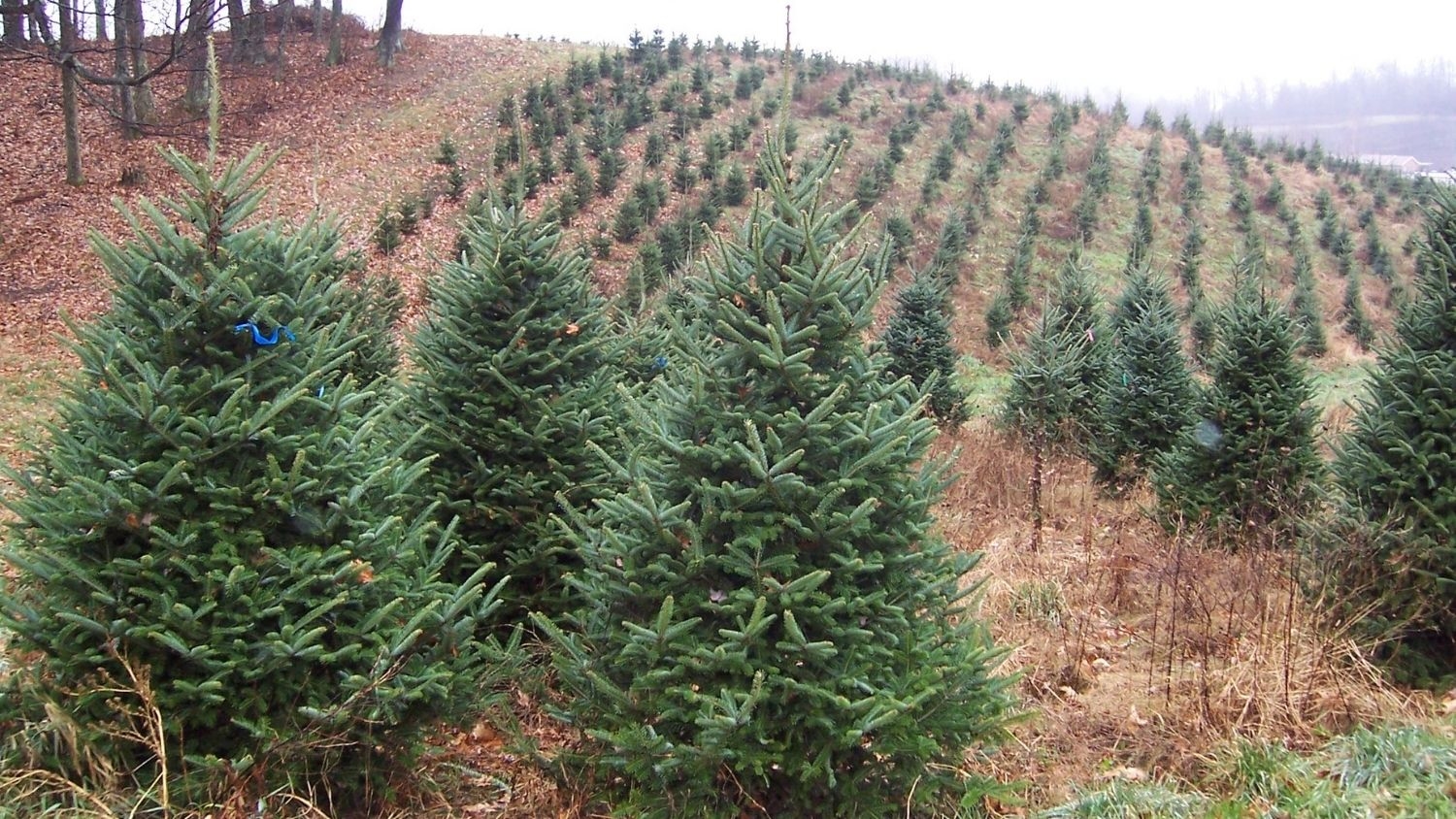Christmas Trees: Here’s The Scoop on North Carolina’s Crop

North Carolina’s Christmas tree growers are prepared to meet high demand from consumers this year, according to the leader of a Christmas tree research program at North Carolina State University.
North Carolina is the second leading Christmas tree producer in the United States, with 38,893 acres in Christmas tree production, according to 2017 data from the National Agricultural Statistics Service.
To learn more about the types of Christmas trees grown in North Carolina, expectations for this year’s crop, and the future of Christmas tree research, we spoke to Justin Whitehill, director of the NC State Christmas Tree Genetics Program and an assistant professor of forestry and environmental resources.
The Abstract: What types of Christmas trees are grown in North Carolina?
Whitehill: In North Carolina, we’re lucky – we have several Christmas tree species grown within the state. The industry in North Carolina really grew from a particular species that’s unique to our state, which is the Fraser fir.
Fraser fir is the premier Christmas tree species in the United States, and some would consider the world. It accounts for around 98 percent of the Christmas tree market in North Carolina. It’s a species that’s only found in the southern Appalachian mountains at higher elevations. It’s been geographically isolated for thousands of years, which has led to its unique characteristics. It is closely related to balsam and Canaan fir, which are species found more toward Canada and northern parts of the country.
It’s called the “perfect Christmas tree” because it has the perfect mix of traits that people consider important for a Christmas tree: It has soft needles, very good needle retention after it has been cut and a pleasant aroma. It has strong branches to support ornaments and an ideal “Christmas tree” shape.
The work performed by my predecessors as part of the NC State Christmas Tree Genetics program used genetics to ensure that these traits are at their peak performance in all Christmas trees generated from seeds, and that they’re consistent throughout the state.
There are as many as 200 choose-and-cut tree farms in the N.C. mountains that sell Fraser firs and sometimes other species of trees. At these farms, you can go and choose your own tree and cut it on site to take home. Fraser firs are also pre-cut and sold wholesale, and can be found on farms and retail lots throughout the state.
TA: Are there other species grown in the state?
Whitehill: We do have an eastern contingent of Christmas tree growers. They grow several species that offer a unique Christmas experience if you are looking for a different type of aroma and a unique character for your tree.
Some of the most popular eastern Christmas tree species include the Virginia pine, white pine, Leyland cypress, eastern red cedar, giant green arborvitae and varieties of Arizona cypress. We actively work with eastern growers to use genetics approaches to improve these species for the future. In particular, NC State has done a lot of work to improve the Virginia pine.
You can find choose-and-cut farms to buy some of these species from eastern growers online. Even during the current conditions, growers are taking precautions to offer a fun experience at their farms.
TA: What are your expectations for the crop this year?
Whitehill: They’re expecting to have a high demand this year because of COVID-19. Some of the other crops in North Carolina, like sweet potatoes and strawberries, have had high demand. Also, pumpkins had a pretty big year as well in North Carolina. The Christmas tree growers are definitely prepared to meet the demand and are expecting to have high demand for product.
TA: What precautions are taken for COVID?
The Abstract: National guidelines from the National Christmas Tree Association have been sent out to all Christmas tree growers throughout the country on how to protect themselves and their customers. If you are going to do a choose-and-cut type of experience this year, you’ll have to reach out to the grower to schedule a time to come out and visit.
TA: What can you say about your plans as director of the Christmas Tree Genetics Program at NC State?
Whitehill: I’m taking the Christmas tree genetics program at NC State into the next generation by incorporating modern genomics technologies. My goal is to expedite the development of elite Christmas tree genotypes and seedlings to produce Christmas trees that are more desirable and more resistant to pests and pathogens, and prepare potential impacts on the horizon due to a changing climate.
I’m going to be working on gene discovery through the integration of ecological studies that aid in the identification of genes, traits or mechanisms that will guide us as to how we can use gene-editing tools, such as CRISPR, to develop Christmas trees that will keep North Carolina at the top of Christmas tree production for generations to come.
- Categories: